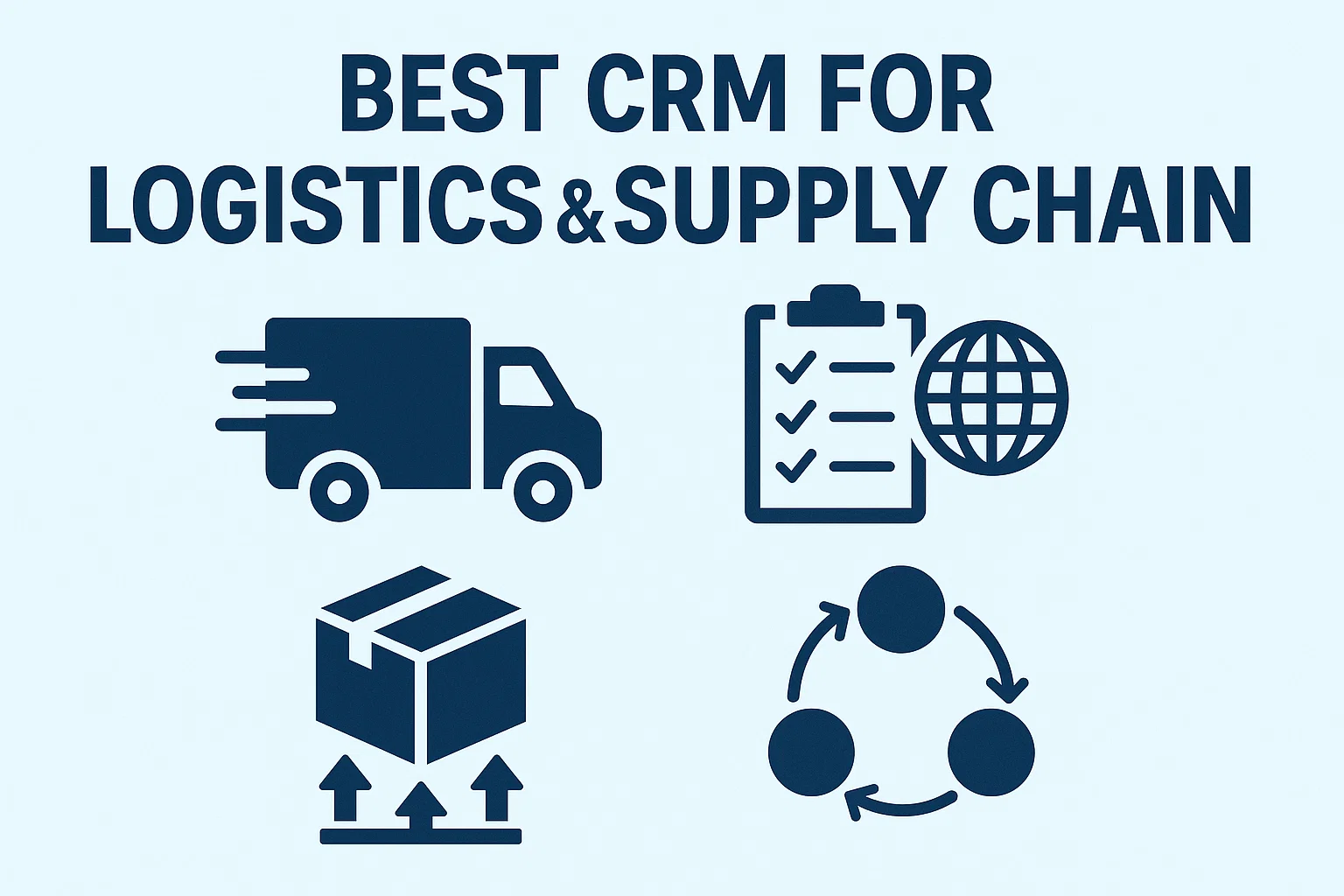Best CRM for Logistics & Supply Chain

Best CRM for Logistics & Supply Chain
The logistics and supply chain industry relies on timely communication, efficient workflow management, and strong client relationships. Implementing a robust CRM (Customer Relationship Management) system can transform operations, enhance customer satisfaction, and streamline the movement of goods from origin to delivery.
Why Logistics Companies Need a CRM
Modern logistics firms face challenges such as coordinating multiple carriers, managing large client databases, tracking shipments, and handling customer queries. A CRM helps by:
- Centralizing customer and partner data
- Tracking shipments and delivery updates
- Automating communications with clients and carriers
- Monitoring key performance metrics for operations
- Integrating with ERP, transport management, and inventory systems
Key Features of a Logistics & Supply Chain CRM
When evaluating CRMs for logistics and supply chain management, prioritize these features:
- Client & Partner Management: Maintain a centralized database for clients, carriers, and suppliers.
- Shipment Tracking & Automation: Monitor deliveries, generate alerts, and update customers automatically.
- Workflow & Task Management: Assign tasks, schedule pickups, and track operational progress.
- Analytics & Reporting: Generate reports on delivery performance, client satisfaction, and operational efficiency.
- Integration Capabilities: Sync with ERP, TMS (Transport Management System), and accounting platforms.
- Mobile Accessibility: Allow field agents and drivers to access data in real time.
| CRM | Best For | Key Features | Pricing |
|---|---|---|---|
| Salesforce CRM | Large logistics enterprises | Client management, analytics, workflow automation, ERP integration | From $25/user/month |
| Zoho CRM | Mid-sized logistics & transport firms | Lead & client tracking, task automation, shipment updates, integrations | Free plan available, paid from $12/user/month |
| HubSpot CRM | Startups & small logistics teams | Contact management, email automation, reporting, pipeline visualization | Free plan available, paid from $50/month |
| Pipedrive | Operationally focused small-medium logistics teams | Workflow management, sales pipelines, mobile accessibility | From $14/user/month |
| Freshsales | AI-powered logistics management | Lead scoring, AI insights, automated notifications, reporting dashboards | From $15/user/month |
Benefits of Implementing CRM in Logistics
- Enhanced customer relationship management and satisfaction
- Improved operational efficiency and delivery accuracy
- Real-time tracking and communication for shipments
- Better decision-making with analytics and dashboards
- Reduced errors in scheduling, billing, and client communications
CRM Best Practices for Logistics Companies
- Define clear lead and client management workflows.
- Integrate CRM with TMS and ERP systems to avoid data silos.
- Use automated alerts for shipment delays and follow-ups.
- Segment clients and partners for targeted communication and reporting.
- Train staff and drivers for mobile CRM usage and real-time updates.
- Regularly review analytics to identify bottlenecks and optimize operations.
Future Trends in Logistics CRM
- AI & Predictive Analytics: Predict delays, forecast demand, and optimize delivery routes.
- IoT Integration: Track vehicles and shipments in real time.
- Mobile-First CRM: Field agents accessing CRM on-the-go for instant updates.
- Enhanced Customer Self-Service: Customer portals for real-time tracking and issue resolution.
- Automation & Workflow Optimization: Reduce manual tasks and human errors in logistics operations.
Conclusion
CRMs are vital tools for logistics and supply chain companies. They centralize client and operational data, automate communication and workflows, and provide real-time insights to improve efficiency. Choosing the right CRM tailored for logistics can significantly enhance delivery performance, customer satisfaction, and operational ROI in 2025 and beyond.
FAQs
1. Can a CRM integrate with existing TMS systems?
Yes, most modern CRMs support integrations with Transport Management Systems (TMS) and ERP software for seamless operations.
2. Is a CRM suitable for small logistics firms?
Absolutely. Affordable CRMs like Zoho, HubSpot, and Pipedrive are ideal for small teams with limited budgets.
3. How does CRM improve delivery accuracy?
By centralizing client and shipment data, setting automated alerts, and tracking tasks, CRM ensures fewer errors and on-time deliveries.
4. Can drivers access CRM data in the field?
Yes, mobile-accessible CRMs allow drivers and field agents to view schedules, update statuses, and communicate with dispatchers in real time.
5. Does CRM provide analytics for supply chain optimization?
Yes, CRMs offer dashboards and reports for lead tracking, delivery efficiency, client satisfaction, and operational performance.
Comments (3)